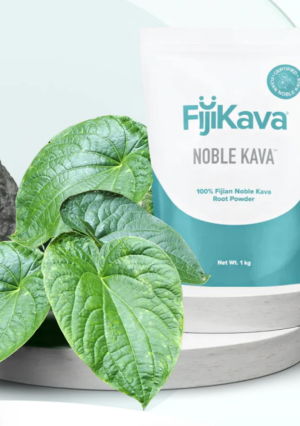Try new ‘alcohol alternative’ at Woolworths—know key facts first
By
Gian T
- Replies 0
A new product is set to arrive on Woolworths shelves, and it’s already getting people talking.
If you’ve been searching for something different to help you relax, you might be intrigued by what’s being positioned as a modern take on an age-old tradition. Marketed as a feel-good option with wellness appeal, it’s stirring interest and questions alike.
But before you make the switch from your usual evening drink, let’s explore what’s behind the buzz—and whether it truly lives up to the hype.
Kava is made from the root of the Piper methysticum plant, native to the South Pacific.
Traditionally, it’s been used in ceremonies and social gatherings across Polynesia, Fiji, and Vanuatu, where it’s prized for its calming, relaxing effects.
The drink itself is known for its earthy, bitter taste—definitely an acquired flavour!—and its ability to promote a sense of calm and well-being.
Recently, kava has been popping up in health food stores, chemists, and now, major supermarkets like Coles and Woolworths.
It’s being marketed as a 'natural' way to relax and reduce anxiety and even as a safer alternative to alcohol.
But as with many wellness trends, the reality is a bit more complicated.
The secret to kava’s effects lies in compounds called kavalactones.
According to Dr Blair Aitken from Swinburne’s Centre for Mental Health and Brain Science, these kavalactones interact with brain chemicals like GABA and dopamine.
GABA helps calm the nervous system, while dopamine can boost your mood and create a mild sense of well-being.
Unlike alcohol, kava doesn’t typically impair your motor skills or reaction time—at least, not when used in traditional amounts.
But here’s where things get tricky: the effects of kava can vary widely depending on the formulation, dosage, and how it’s prepared.
Traditional water-based kava is generally considered safe when used in moderation; however, modern commercial products sometimes use alcohol or acetone to extract the active compounds, which can also extract other potentially harmful chemicals.
Many people are drawn to kava because it promises relaxation without the risk of intoxication or hangovers.
And it’s true—when prepared and consumed traditionally, kava is considered safe by both the World Health Organisation and the Australian government.
Most people experience only mild side effects, if any, when sticking to recommended doses.
However, there are some important caveats. High doses, long-term use, or combining kava with alcohol or certain medications can increase the risk of liver damage and other health issues.
People with existing liver problems should steer clear altogether. And because the science is still emerging, especially around modern extracts and concentrated forms, experts urge caution.
Dr Aitken points out that while kava may help with mild or situational anxiety, it’s not a first-line treatment for more serious, clinically diagnosed anxiety disorders.
Some studies have shown promising results, but others have failed to replicate those findings.
With Woolworths joining Coles in stocking kava products, you’ll soon see a range of options—from powders and capsules to ready-to-drink shots.
However, not all products are created equal. Some, like Bioglan Kava capsules at Chemist Warehouse, offer standardised dosing (60 mg per capsule, with a recommended daily intake of 60–120 mg).
Others, like Fiji Kava Noble Root Powder or TakiMai kava shots, don’t always specify the exact amount of kavalactones per serving.
This lack of clear labelling is a concern for health professionals. Dr Aitken stresses the importance of transparent labelling so consumers can monitor their intake and avoid exceeding safe limits.
The recommended maximum daily dose is generally 250 mg of kavalactones, but it’s easy to go over if you’re not sure what you’re getting.
Kava’s legal status in Australia is a bit of a patchwork. Most states and territories allow limited personal use under federal guidelines, but the Northern Territory has stricter rules due to concerns about misuse.
Internationally, kava is classified as a psychoactive substance in places like New Zealand, and its legal status varies widely.
Kava might be a tempting alternative for those looking to relax without the downsides of alcohol, but it’s not risk-free.
The science is still catching up, and the safety of modern, concentrated products isn’t fully understood.
If you’re considering giving kava a go, do your homework, read the labels, and talk to your doctor—especially if you have any underlying health conditions.

Have you tried kava before? Are you curious about this new 'alcohol alternative,' or do you prefer to stick with the classics? Share your thoughts, experiences, and questions in the comments below.
Read more: Discover the unique product Coles is selling after being banned in Australia
If you’ve been searching for something different to help you relax, you might be intrigued by what’s being positioned as a modern take on an age-old tradition. Marketed as a feel-good option with wellness appeal, it’s stirring interest and questions alike.
But before you make the switch from your usual evening drink, let’s explore what’s behind the buzz—and whether it truly lives up to the hype.
Kava is made from the root of the Piper methysticum plant, native to the South Pacific.
Traditionally, it’s been used in ceremonies and social gatherings across Polynesia, Fiji, and Vanuatu, where it’s prized for its calming, relaxing effects.
The drink itself is known for its earthy, bitter taste—definitely an acquired flavour!—and its ability to promote a sense of calm and well-being.
Recently, kava has been popping up in health food stores, chemists, and now, major supermarkets like Coles and Woolworths.
It’s being marketed as a 'natural' way to relax and reduce anxiety and even as a safer alternative to alcohol.
But as with many wellness trends, the reality is a bit more complicated.
The secret to kava’s effects lies in compounds called kavalactones.
According to Dr Blair Aitken from Swinburne’s Centre for Mental Health and Brain Science, these kavalactones interact with brain chemicals like GABA and dopamine.
GABA helps calm the nervous system, while dopamine can boost your mood and create a mild sense of well-being.
Unlike alcohol, kava doesn’t typically impair your motor skills or reaction time—at least, not when used in traditional amounts.
But here’s where things get tricky: the effects of kava can vary widely depending on the formulation, dosage, and how it’s prepared.
Traditional water-based kava is generally considered safe when used in moderation; however, modern commercial products sometimes use alcohol or acetone to extract the active compounds, which can also extract other potentially harmful chemicals.
Many people are drawn to kava because it promises relaxation without the risk of intoxication or hangovers.
And it’s true—when prepared and consumed traditionally, kava is considered safe by both the World Health Organisation and the Australian government.
Most people experience only mild side effects, if any, when sticking to recommended doses.
However, there are some important caveats. High doses, long-term use, or combining kava with alcohol or certain medications can increase the risk of liver damage and other health issues.
People with existing liver problems should steer clear altogether. And because the science is still emerging, especially around modern extracts and concentrated forms, experts urge caution.
Dr Aitken points out that while kava may help with mild or situational anxiety, it’s not a first-line treatment for more serious, clinically diagnosed anxiety disorders.
With Woolworths joining Coles in stocking kava products, you’ll soon see a range of options—from powders and capsules to ready-to-drink shots.
However, not all products are created equal. Some, like Bioglan Kava capsules at Chemist Warehouse, offer standardised dosing (60 mg per capsule, with a recommended daily intake of 60–120 mg).
Others, like Fiji Kava Noble Root Powder or TakiMai kava shots, don’t always specify the exact amount of kavalactones per serving.
This lack of clear labelling is a concern for health professionals. Dr Aitken stresses the importance of transparent labelling so consumers can monitor their intake and avoid exceeding safe limits.
The recommended maximum daily dose is generally 250 mg of kavalactones, but it’s easy to go over if you’re not sure what you’re getting.
Internationally, kava is classified as a psychoactive substance in places like New Zealand, and its legal status varies widely.
Kava might be a tempting alternative for those looking to relax without the downsides of alcohol, but it’s not risk-free.
The science is still catching up, and the safety of modern, concentrated products isn’t fully understood.
If you’re considering giving kava a go, do your homework, read the labels, and talk to your doctor—especially if you have any underlying health conditions.
Key Takeaways
- Kava, a traditional Pacific Island plant-based drink claiming to promote relaxation and reduce anxiety, will soon be available at Woolworths, joining an expanding selection already at Coles and other Australian retailers.
- Experts warn that while traditional kava is generally considered safe in moderate doses, modern commercial formulations can vary in potency and may carry health risks, including liver damage—especially when dosages or preparation methods are unclear.
- Research into kava's effectiveness for anxiety has produced mixed results, with some studies suggesting it may help in mild or situational anxiety but is not a proven treatment for clinically diagnosed anxiety.
- Health professionals stress the need for clearer labelling of kava products, more consumer education, and stronger regulatory oversight, warning that 'natural' alternatives are not automatically risk-free.
Read more: Discover the unique product Coles is selling after being banned in Australia
Last edited:








